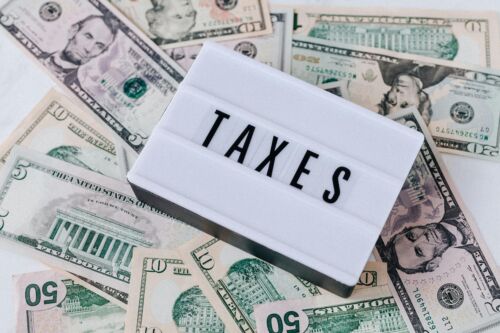



It seems everything is getting more expensive these days, and insurance is no exception. Virginia, Maryland, and Washington, D.C. are seeing continued insurance rate increases across multiple sectors, driven by rising medical and vehicle repair costs, changing market conditions, and higher state-mandated liability coverage requirements.
In Virginia, recent legislative changes have increased the state's required auto liability minimums to 50/100/25 for policies renewed or issued after January 1, 2025, one of the biggest factors pushing premiums upward. The increase is not new in Maryland: the Maryland Insurance Association reviewed rate filings from the top ten personal auto insurers and found increases ranging from 1.8% to a staggering 49.7%. Meanwhile, a recent USA TODAY MarketWatch analysis found the most dramatic insurance premium price hike was in Washington, D.C., where premiums jumped 20% - from $2,684 to $3,209. The same analysis found that average auto insurance rates are expected to rise by 7.5% in 2025.
As stated by Maryland Insurance Commissioner Kathleen Birrane, who heads the state agency that oversees and regulates insurers in the state, “The primary driver of the increase in premium is the increase in losses that insurance companies are required to pay — the cost of an accident, the cost of parts, the cost of medical care when there's a bodily injury claim, the cost of a jury verdict and the amounts of verdicts that are increasing over time.” For many households, this amounts to a hidden “litigation abuse tax” taking hundreds of dollars out of their pockets each year.
Florida drivers faced similar challenges for years, with skyrocketing auto insurance premiums fueled by legal abuse, fraudulent claims, and aggressive lawsuit tactics, notably assignment of benefits (AOB) and “one-way” attorney fees. Lawmakers responded with sweeping Tort Reforms beginning in 2019, including: HB 7065 (2019) began limiting abuses tied to AOBs, SB 76 (2021) shortened deadlines for claims and required dispute notification before lawsuits, SB 2D (2022) eliminated one-way attorney fees for AOBs and launched a $2 billion Reinsurance to Assist Policyholders (RAP) fund, SB 2A (2022) went further by cutting off one-way fees entirely, improving insurer accountability, and improving regulatory oversight, and HB 837 (2023) reinforced these changes, revamping bad-faith standards and curbing frivolous litigation.
The results have been dramatic. For example, lawsuits linked to auto-glass and other claims plunged—from roughly 24,720 in mid-2023 to just 2,613 by mid-2024, nearly a 90% drop - and the personal auto liability loss ratio (claims paid vs. premiums collected) dropped from 80.5% in 2022 to 53.3% in 2024, the lowest in the nation.
As litigation declined, more insurers returned to the market, with over 11 new companies entering and nearly half a million policies shifting back to private carriers from Citizens Property Insurance, boosting competition. This new environment prompted major carriers—particularly those covering nearly 80% of the state’s auto market—to file for significant rate reductions, with the top five auto insurers averaging a –6.5% rate cut for 2025, real savings passed on to consumers.
For many drivers, these rate cuts translate into meaningful annual savings. Estimates suggest a full-coverage auto policy may drop by approximately $226 per vehicle, and basic liability coverage may decrease by about $99. Compared to a significant national increase, the projected average rate increase for 2025 in Florida is less than 1%.
Florida’s experience demonstrates how meaningful reforms can rebalance the insurance market. By curbing frivolous litigation and closing loopholes that encouraged abuse, the state lowered loss ratios, attracted new insurers, and ultimately delivered real savings to consumers.
As Virginia, Maryland, and D.C. grapple with rising rates, Florida offers an example of how rethinking legal incentives and reducing litigation abuse can ease financial pressures on drivers and families.
If you have questions about this article, please contact Michael Jacquez (mjacquez@setlifflaw.com) at (804) 377-1262 or Steve Setliff (ssetliff@setlifflaw.com) at (804) 377-1261.
© 2025 Setliff Law, P.C.| View Our Disclaimer | Privacy Policy